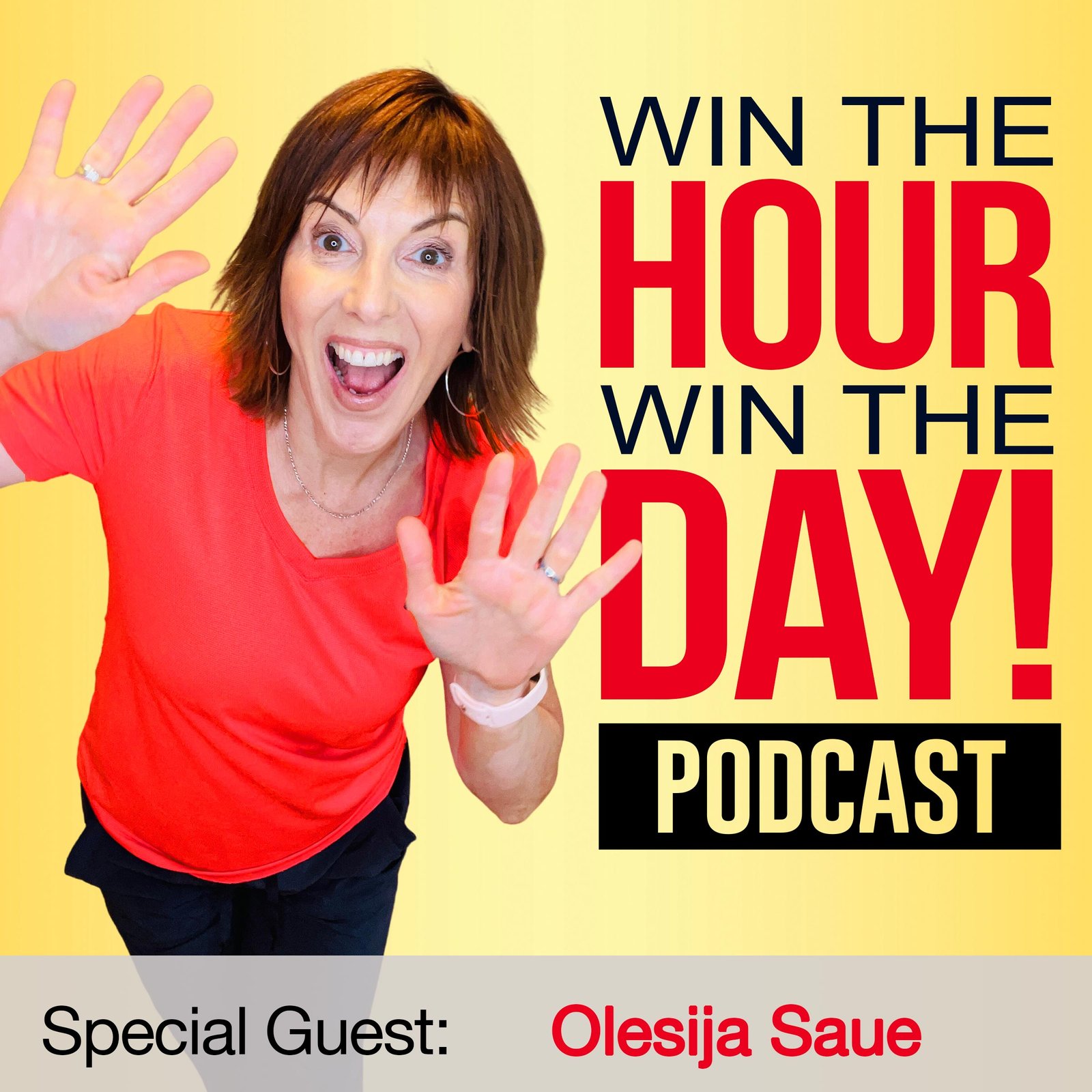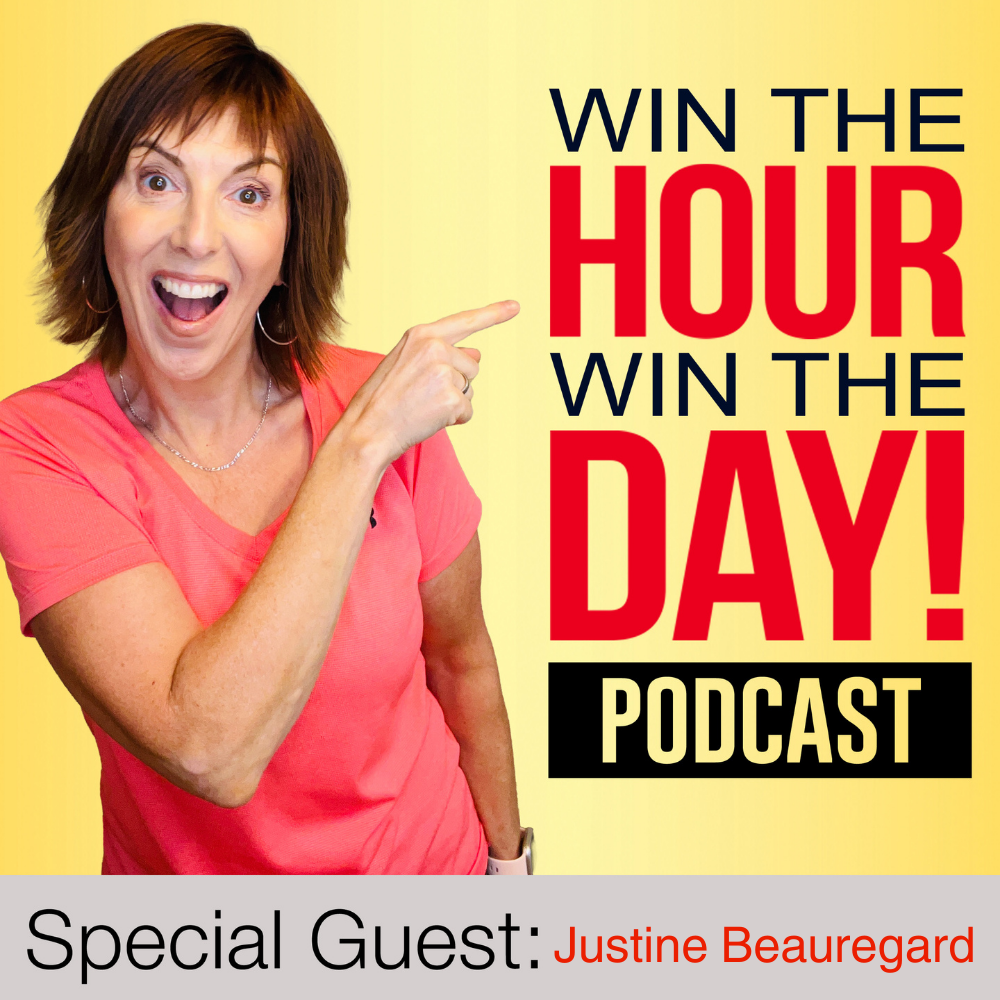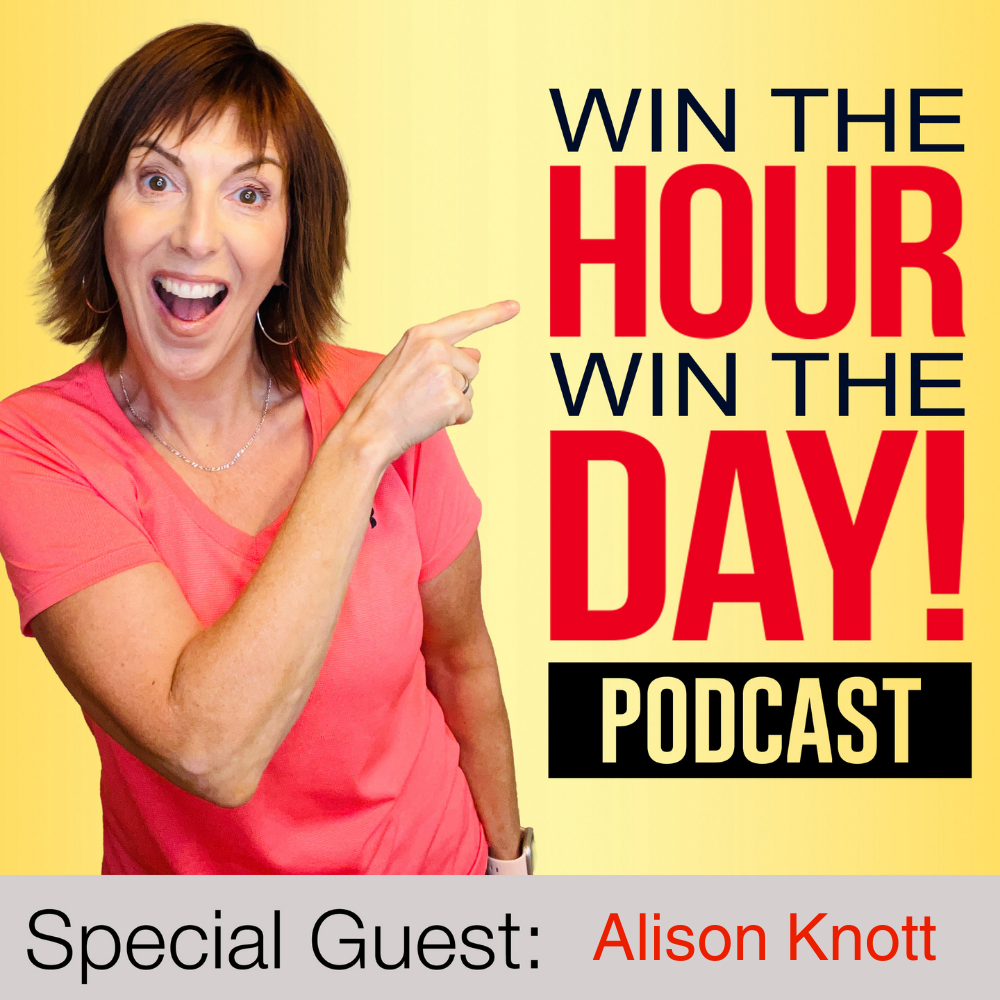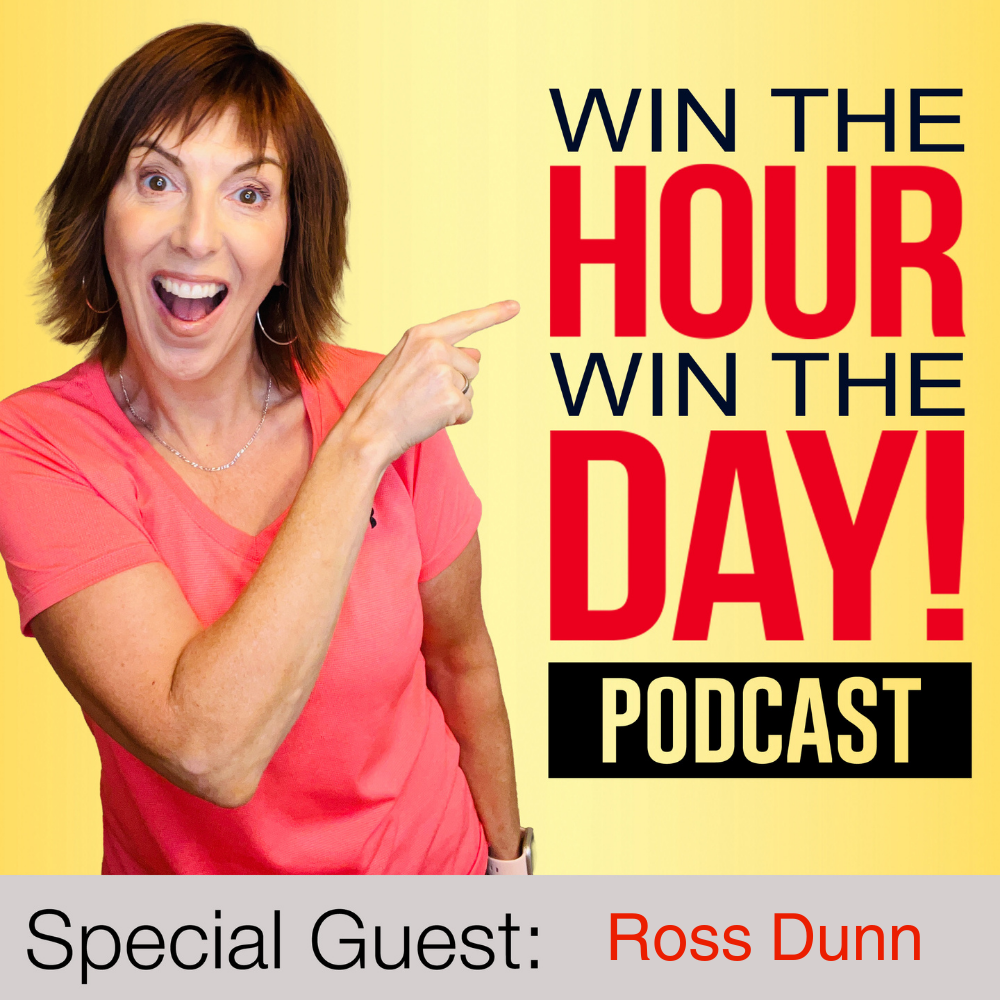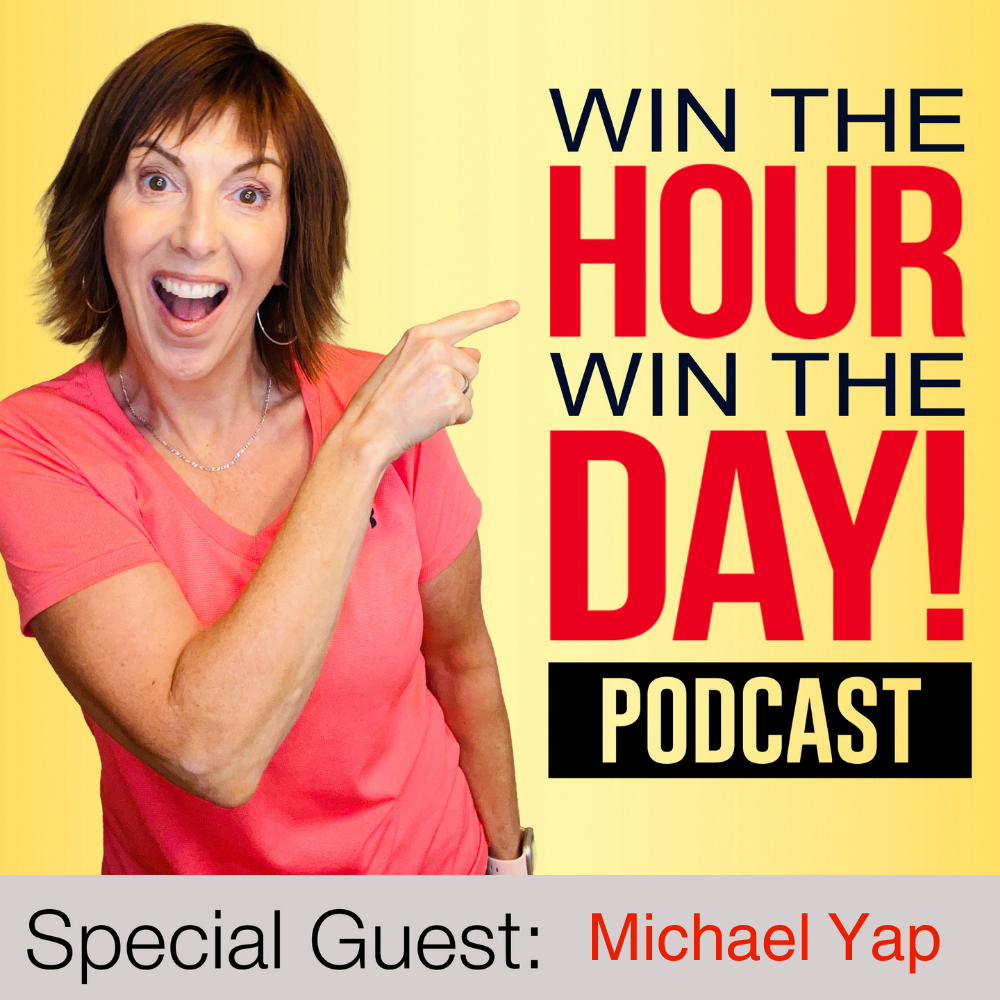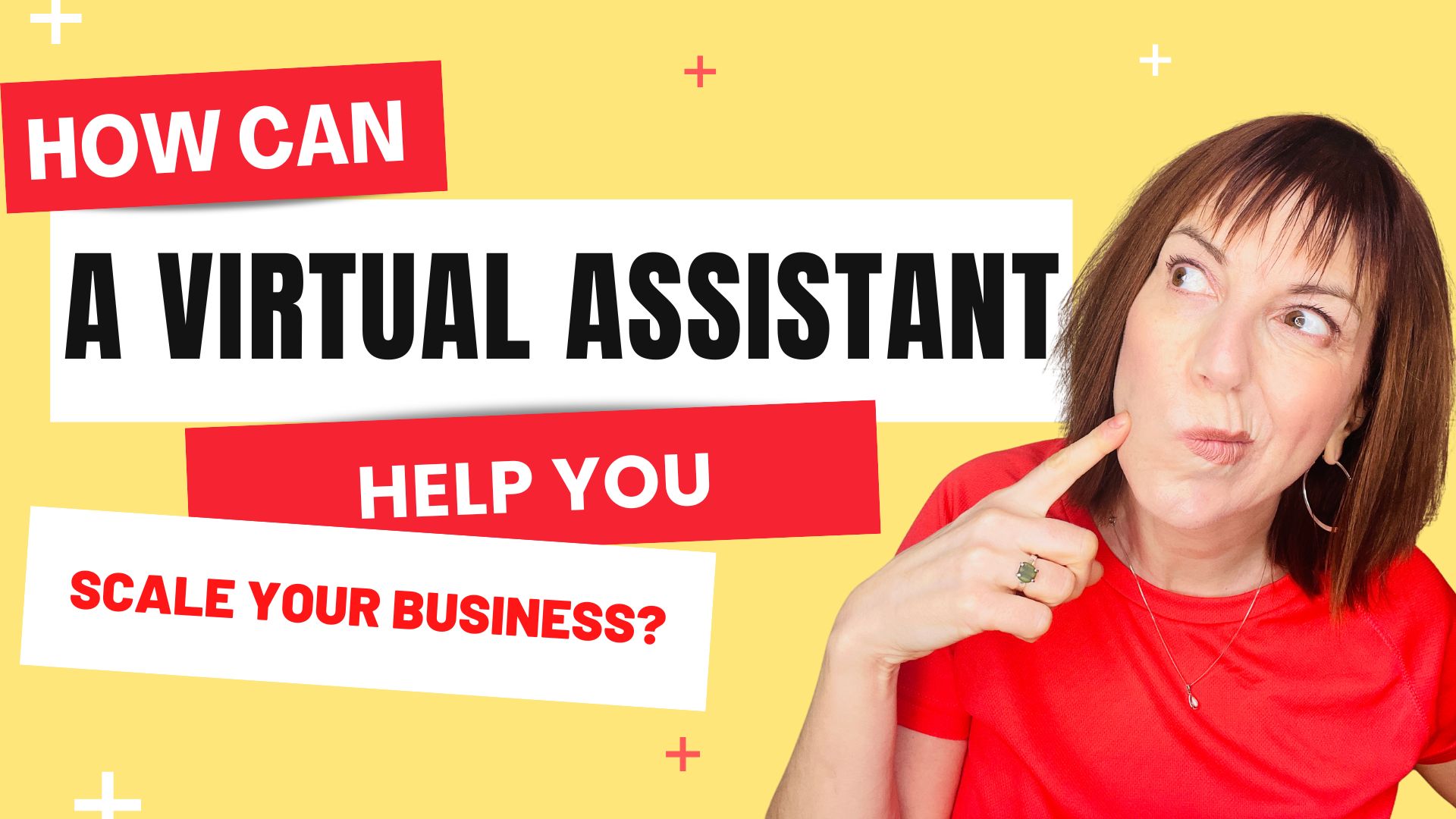Episode Summary
This week’s episode of Win The Hour, Win The Day Podcast is sponsored by Win The Hour, Win The Day’s Signature Coaching Program the Winners Circle. Kris Ward who helps entrepreneurs to stop working so hard interviews, Olesija Saue.
Are you struggling to show the real you in your personal brand?
In this enlightening conversation, you’ll learn:
– How personal branding and NLP (Neuro-Linguistic Programming) combine toreveal your true self.
– The importance of aligning your subconscious with your outward image.
– Tips for embracing your unique qualities to strengthen your personal brand.
Power Personality Quiz! http://winbacktimequiz.com/
Win The Hour, Win The Day! www.winthehourwintheday.com
Podcast: Win The Hour, Win The Day Podcast
Facebook: https://www.facebook.com/winthehourwintheday/
LinkedIn: https://www.linkedin.com/company/win-the-hour-win-the-day-podcast
You can Olesija Saue at
LinkedIn: https://www.linkedin.com/in/olesijasaue/
#krisward
#LeadGenerationTips
#EmailMarketingStrategies
Win The Hour Win The Day
https://winthehourwintheday.com
Olesija Saue Podcast Transcription
[00:00:00] Kris Ward: Hey everyone. Welcome to another episode of Win The Hour, Win The Day, and I am your host, Kris Ward. And today in the house, we have Olesija Saue. Now she is a personal branding strategist. With a sort of sprinkle of NLP strategy in there as well to make it even more dynamic and interesting. Welcome to the show, Olesija.
[00:00:22] Olesija Saue: Yeah, I’m so great happy to be here and talk about two of my passions.
[00:00:27] Kris Ward: Okay.
[00:00:30] Olesija Saue: Personal branding.
[00:00:31] Kris Ward: Branding and NLP. Why do those two things go together? Why do you talk about those two things?
[00:00:37] Olesija Saue: Because personal branding is all about people, but quite often when we’re talking about personal branding, we focus too much on the packaging side so on the strategies, on the tactics but the most important element of the personal branding is Is the person.
[00:00:59] And NLP helps to understand the person from within, understand the unique personal brand, DNA. So all of the strengths of the person, all of the values, the underlying motivations of the person. So we align both of conscious and subconscious mind that in order to create authentic representation of the real person.
[00:01:26] Kris Ward: Okay, let me jump in. Let me jump in for a second. So a lot of us probably know what NLP is by now, but can we unpack that just for a second? What does it stand for? What does it mean? Why is it important?
[00:01:37] Olesija Saue: NLP is Neuro Linguistic Programming. It was founded in the 70s and originally it was about understanding the structure of the language that we use in order to get deeper into the internal picture that we create.
[00:01:57] And once we understand the deep meaning onto the words, we can challenge that, we can change the perceptions, and we can also change the picture. So the way that we perceive the world and nowadays NLP goes a lot into working with subconscious mind and helping us to stop sabotaging ourselves. And in personal branding, that’s very important because if we want to create a strong personal brand whether it’s offline or online, we have to become visible.
[00:02:36] Kris Ward: Okay. So let me jump in for a second. I promised to interrupt you a lot because when you say smart things, I have to unpack it. Okay. So here’s my pushback. Here’s my sometimes complaint about branding. We talk about this a lot in the show. Branding is so broad. And then I would argue that also when you talk about your subconscious, that’s a powerful conversation.
[00:02:58] And I can think of some things where I was like, Oh, I was thinking this, but I was doing that. So I resonate with what you’re saying. However, how everybody listening to our show loves immediate takeaways, right? So I guess my concern is. If it’s in my subconscious and I’m looking at my own branding, it’s like when people say, be authentic.
[00:03:19] And then I say nobody would try to be inauthentic. I don’t believe that. So when they put their stuff out, they think they’re being authentic. So what can we do with this powerful information that you have? That’s something that we can act upon versus a lot of theory, because unless we have you over our shoulder.
[00:03:38] How do I know? How do you even know what’s my subconscious? Am I conscious? It just seems what am I supposed to do with that?
[00:03:44] Olesija Saue: Yes, you’re absolutely correct. I will just briefly explain what authenticity really means because we are talking a lot about authenticity. I believe that every single personal branding expert would tell you that you have to be authentic, but what does it mean?
[00:04:02] In personal branding context and in browser sense, authenticity is about understanding and accepting yourself the way you are. So if you look at different brands, strong brands, they are who they are. So I accept my weaknesses, I accept my peculiarities, and that’s okay. And it gives me freedom to express my passions in a way that I don’t depend on Neither on your approval, nor I’m afraid of you thinking something different.
[00:04:42] Kris Ward: Okay, hold on. This is powerful. Okay, this is I’m impressed. This has not been explained to me in this way before. Because when you said that, Accepting, understanding and accepting. Oh, that’s cause I haven’t heard that before. The understanding, to me, it’s blah, blah, blah.
[00:04:59] Because my frustration with understanding is often, we don’t understand where we are until we’re looking back on it. So to me, that was a, not fair, but accepting, because that reminds me when I started doing social media in the beginning. And doing videos in my mind, it was like, Oh, I have to look professional, right?
[00:05:18] Put your shoulders back. And what I was doing was giving myself more of a watered down veneer version because I was trying to be grown up and professional because I thought that’s what was expected on me. Not that I was being inauthentic, but who I am on Saturday with my friends or at the gym is different than who I am now.
[00:05:38] It’s not a big leap, but I’m slightly different, right? How you are with somebody that knows you really is slightly different than how you are at work. So I thought you were supposed to be professional and, but I was always trying to overcome the fact that I’m high energy. People it’s Oh, people always talk about how high energy I am, but I thought that came across as juvenile.
[00:05:57] So I was trying to tone that down. So I’m working against myself because I think that is a better version. And then what I was finding is I was working with these clients who would say after they got to know me, they’d be like, Oh my gosh, Kris, you’re so much more fun than I saw you online. I’m like cause that’s cause I guess I thought that was like a fifth date thing.
[00:06:17] Like after you know me a bit, I can be myself. So what you just said there is really powerful is not just understanding, but accepting who you are and leaning into it. Yeah.
[00:06:28] Olesija Saue: Yes. And that portraying all this also online, because if you do you also online, then people who come to you, they already come to you because of who you are, so they wouldn’t have to get to know you once, but they would already come with the expectation of your high energy, they would all already know what’s your value, how you are different from others, and once you meet.
[00:06:57] Then you have to live up to those expectations and ideally be even more of that. But this is the part of about uniting the internal your brand, your internal personal brand, DNA with the outward image. And obviously we would never portray a hundred percent of our personality in the printing.
[00:07:20] But as the more of who we are, we can put it there. The easier it would be for our people, our audience to resonate with us. How would you know that? Once people who don’t know you, the minutes they see you say, Oh, you exactly the way I imagined you.
[00:07:40] Kris Ward: Yeah.
[00:07:41] Olesija Saue: That’s your personal brand is working in a way that it should be working for you.
[00:07:47] Kris Ward: Okay. That’s powerful. Because when I wrote that down, as you were talking, when you hear a compliment let’s say if somebody that’s a celebrity or whatever, and they’ll say, Oh, they’re exactly as they are on stage as they are off stage, like that person that’s who they are. And then we go, Oh, that’s great faith in that.
[00:08:03] But the rest of us, I think I would be trying to constantly suppress my flaws and build up my strengths. But then I’m just in my head and I’m not anybody. And the thing I found too, when I was back to this version, when social media was new and video, which by the way, boys and girls sounds like I’m talking about the 1800s now.
[00:08:23] But anyhow, what I found too is when I was at veneer watered down version of myself, And some of the things that people, my clients really love is I’m very clear, no nonsense, direct, let’s get to it. No big results, no fluff. Let’s just get action, get results. So a certain amount of my clients love that.
[00:08:41] Once they got to know me, it’s Oh, we get stuff done. We move past. This is great. Then the other ones who got that false sense of me because I was trying to be professional would find me a little bit harsh or a little bit abrupt, or I would have to phrase things softer and say, you know what, we should really think about, you might consider.
[00:08:58] And then because they found I was harsh. So then I would go back to the client who knew and liked me and they’d say, Kris, just get to the point. Usually you get to the point. So I was trying to be different people and I wasn’t satisfying anyone. One thought I was too abrupt and the other thought.
[00:09:14] That’s not who, what, who we like working with. Why are you being different now? Because the other people were training me. So I was lost.
[00:09:20] Olesija Saue: Yeah. And what you really want is to attract the right people from the very beginning. And it’s actually in our nature to try to be liked by others. And we want to be perfect.
[00:09:35] We want to create a perfect image of who we are. But it actually doesn’t work because other people don’t resonate with perfection. They resonate with our real stories. And it is quite intimidating to put yourself out there, to show who you are, because you never know how people would react, whether they would resonate or not.
[00:10:03] But it is this leap of faith once you take it it doesn’t have to be a very big step in the very beginning, but the more you practice expressing yourself in the way that you would be talking to your friend or to your ideal clients, not in a way that you normally do. And in this way your unique style, your format that works for you.
[00:10:33] And this is one of the reasons why I don’t believe that you can teach personal branding based on your own experiences, because you can teach me strategies. You can teach me tactics, but you can teach me algorithms, but you, they wouldn’t be you once I start to copy that. And I need to understand how do I put my personality into this set equation for it to work.
[00:11:03] So that’s why personal branding really starts from the, from within.
[00:11:08] Kris Ward: Oh, I see. Okay.
[00:11:09] Olesija Saue: That’s outside. Because the packaging part is the very last piece. Quite often people ask me, what color should I choose for my website? This is the question you have to answer after you have looked at your life, at your style.
[00:11:27] What is the color that you most most often use? What is the color that represents you? What would be the color that you feel comfortable being in a client meeting, outdoors, or a great stage? Then we can talk about putting this into visual identity of your brand image.
[00:11:51] Kris Ward: Yes, because I hear so often you hear years ago be like, Oh, this company is really successful because they use the color red.
[00:11:57] Everybody should use red because it’s a power color, right? And then you’re just trying to fit yourself into something else. I think from what you’re saying, what I hear is you’re saying, okay, look in, and I didn’t understand where you’re going with that. I was like, what do you mean? You can’t teach personal branding.
[00:12:10] What the heck do you do? So I was like, where’s she going with this? But I think what you’re saying is there is a certain element of us. And it’s almost if I came back from the grocery store and I said, Here’s the groceries I have. And so if I have tomatoes and, meat and pasta or whatever, then you might say, okay, great.
[00:12:29] We’re, we can make one of these many pasta dishes. This is what we have, but we have to start with the ingredients we have. We can’t make apple pie out of this tomato. And so what you’re saying is let’s first stop trying to fit into all these things that we have to get done and just go in this whole, one of the things I learned when I was doing, public speaking or be speaking on stages.
[00:12:52] The biggest turning point for me was when I learned to talk, not to present. But I think so many of us, like you brought up a really good point. It’s not that I want to be liked or perfect. But I do constantly try to get up every day and be a better version of myself. And that’s cause I talk too quickly or I do whatever.
[00:13:12] And instead of looking at those as horrible flaws that I have to overcome, I have to say, some people really love my high energy and I, and it doesn’t matter if they do or they don’t, I’ll have to find my people. Cause that’s who I am.
[00:13:25] Olesija Saue: And there will be people who also love high energy. And they refer you to all other people out there who might seemingly do be doing the same thing.
[00:13:37] I like to say, and people often are looking for my unique competitive advantage, my unique angle. What is my unique value proposition? Your unique Advantage that no one can copy is you,
[00:13:53] Kris Ward: right? Okay.
[00:13:54] Olesija Saue: And we need to learn to present that because the confusion actually comes from the corporate branding world are created from scratch.
[00:14:06] There is some entity which is created and young archetypes are used to create an emotional connection with the right audience. So if your value security identity You would be drawn to Volvo if you are more into speed than BMW would speak to you. If you love innovation then Tesla would be your thing.
[00:14:32] But with people, we don’t need to create anything because it’s there. And in regular life, it just happens in a natural way that people who are similar. They connect much easier. We start to each other. We start to trust each other. But in a branding context, today we have two personalities. I would say two twins.
[00:14:59] So one physical and one digital. We have to create a whole image. And it can be only done if we go in and understand that, and then we know, okay, that’s who I am, that’s the way I communicate. And I just do it naturally, instead of the format.
[00:15:25] Kris Ward: You bring up a really good point. Cause we talk about this a lot when we do team building is we hire, find, on board virtual assistants for our clients through our leadership program.
[00:15:35] And one of the things I’m always talking about is how parentified the corporate model is. That when you’re supervising a team member you’re treating them like a child or a student, and you’re checking their work and that doesn’t work, and that’s why our whole leadership program and our team philosophy is incredibly different, but you bring up another point of we’re so institutionalized by all these corporations, because I don’t care how young you are when you started your own business.
[00:15:59] We, at some point we worked for some corporation, even if it was You know in an ice cream parlor of a big chain, it’s still a corporation, right? And so we’ve just been taught that way to be thinking out, Oh, okay, here’s, my, my first job working at a coffee shop, here’s the shirt I had, they gave me a uniform.
[00:16:16] I didn’t wear this. I had to wear that. My hair had to be a certain way. They fit me into a model. And so then when you grow up and you have your own business, you think, Oh, I have to create that model. What is the model? Cause every job I had to fit into their model. And so now you forget that it’s just me.
[00:16:31] Stop thinking, just be me, right?
[00:16:33] Olesija Saue: Exactly. And that’s why it’s so important not to just use your conscious mind, but connect with your subconscious mind because it helps you to come up with ideas that are unique to you based on your appearances. And I promised you some very tangible thing that all of our listeners can use both men and women alike.
[00:17:02] We know in our body. When something is right to us we just have to come into our body, all mindfulness techniques work perfectly for that. We just can start breathing and we have to feel how is it for me? I would feel light if it’s right. I would feel if it’s wrong, I would feel that it’s heavy, it’s pulling me down.
[00:17:32] If you look at yourself in the mirror, you would literally see how your body posture is changing.
[00:17:40] And in that way, you would always know. You can start testing. On the very simple things you can actually start playing with that. Is this lunch good for me? Is this idea good for me? Do I feel inspired by writing this post?
[00:18:01] Or I’m more drawn to recreating a video? I truly believe that algorithms and times for both things are important, but what is really the most important component is that you are writing or speaking from your heart. Once you’re really speaking from your heart, you are tapping into emotions of a person on another side of the screen a person who is listening to you from stage, and people are buying from with their hearts.
[00:18:38] Kris Ward: Okay. Let me jump in because you brought up some really good points. I know I call it like being in alignment. You’re just so Oh, you get a new client. You’re like, Oh, I can’t wait to start with them. They’ve got something I’m really excited to work with. And I would say like in the last 14 years, I think there’s only been like two times where I got a new client and I was like, Ooh, I was hoping that they didn’t sign on.
[00:18:59] Cause I just got the vibe, like it seemed intense or everything seemed to be a problem. And I warned them a couple of things. Like we do this, not that. No, we understand. When I was newer in business back in the day, I would think, Oh, I’m going to prove myself to them. They’re going to understand what we do is really good.
[00:19:14] So now I know to not give that up. Like I can’t convince anybody if we’re not, You don’t appreciate our work, like it’s just never, it’s just never going to work. But even then I, what I, to what you’re saying is then you justify in your head Oh once she understands the program, it will be different.
[00:19:32] Or, I could use the money or they need my help, even though they don’t seem to value what we’re doing. They’re going to see the results, but you’re right. It’s heavy and it’s heady and you’re thinking, and you’re doing all this to justify it. Even though you’re like, I don’t, I’m not running forward to this opportunity.
[00:19:50] So I, at both times, it did not go well. Cause it’s like, Oh I ding ding. I saw things, but I think to your point, and this is why we talk to our clients about this all the time is entrepreneurs. We’re also often taught to push through grind it out. It doesn’t matter how hard it is, do it.
[00:20:06] And that’s what I say all the time when people say that phrase of, do you eat the frog first in the morning from that book? And it’s you should get rid of the frog. You don’t have to eat the frog. You shouldn’t have the frog. So I think that leans into what you’re saying as well, is it’s not about buckling down and getting it done.
[00:20:22] You’re trying to do the wrong damn thing if you have to push through to get it done.
[00:20:26] Olesija Saue: Yes, absolutely. And that’s why there is no one size that fits. Yeah. And I, I don’t believe that there would be a good outcome if you push yourself into doing that because your, the energy with which you are doing that would be felt.
[00:20:44] Yeah. And attract. Repel. Yeah. We’re not, especially in business environment, we are not taught to follow Ourian. Yeah. But if if you talk and you talk to many different people, if if you ask them how did you make this decision, which was really perfect, which really opened totally new opportunities, it is.
[00:21:09] In most cases, based on their intuition. Yes, we need to have the solid foundation. We have to understand the business environment markets. Our clients. We can put all of the numbers into the Excel. The last part of that comes from from this inner knowing from from our intuition. And also in personal branding, it’s the same.
[00:21:37] So we can follow the structure to ask ourselves certain questions. Who am I? Where am I going? What is my intention with this personal branding? We can also ask ourselves, who is my ideal client? But once again, we can think logically about our idea, but we can also use the embodiment techniques to actually physically step into the shoes of our clients and see how does it feel?
[00:22:11] What do they really
[00:22:14] Kris Ward: And how do we feel? Because I often think Oh, that felt right. I’m so excited. That felt right. And when it didn’t feel right, I’m like, okay I’m going to do this to be responsible. Even in my personal life, I’ve had to learn to say here’s an example. Let’s say I, let’s say, I don’t know, you had a bad week or something, and I want to go over and drop by your house and leave you cookies.
[00:22:38] I’m known for my baked goods. All right. So I think, oh, I’m going to drive to your house because I just want to see you. I just want you to know. That I’m thinking of you. So if I drive over there and you’re not home and I leave you the cookies and you’re like, Oh, my week turned around. I went out. I’m like, great.
[00:22:50] I just wanted you to know I was thinking about you, but if I did it, cause I thought I should be responsible Oh, you know what? She’s my sister in law. We don’t. We don’t get along well. We don’t not get along, but I should probably go over because then it’s going to look like I don’t care, but I don’t really want to go over, but I’m just doing, I’ve had a busy week.
[00:23:08] And so then I drive over and I’m like, Oh my gosh, I drove all the way over here and she’s not even here. She’s fine because I did it with the wrong intention. And I wasn’t doing it. As you said, with my embodiment, I wasn’t, I didn’t feel good. I wasn’t something, it wasn’t inspired action.
[00:23:23] And so I’ve learned personally not to do things because I think I should do them because I want to. And then the results always turn out. And again, a mistake I’ve often made in life is thinking that the personal me is different than the business me. So if I would do that in my personal life, why would I not do that in my business life?
[00:23:42] Don’t do it because you think you should do it because it feels right.
[00:23:45] Olesija Saue: Yes, absolutely true. And Once again, if we are talking about personal branding, then we don’t have a collection of hats. This is Kris who is at home. This is Kris with her friends. This is professional Kris. This is the one who is doing podcasts.
[00:24:04] It’s not a collection of hats. It’s the sum total of everything that you are. And in our interconnected world, where the lines between personal and professional are blurred in any case because of social media. If you try to present just professional image, people would perceive you as distant, as boring, as too career oriented.
[00:24:34] So you are actually taking out a lot of personality. And if I’m talking about this balance between personal and professional, it doesn’t necessarily mean that you have to be talking about your family, about what you are doing outside of your job, but I’m talking about sharing your vision of the world, sharing things that you really care about.
[00:25:00] Care about things that you value, stories that you can connect to your business life.
[00:25:09] Kris Ward: Okay, let me jump in there because I always used to struggle with this. So here’s the thing. I think what you’re saying is I’m just not, ah, if something, if I did go through something difficult, I’m very positive. I look forward.
[00:25:21] So even in my, if you were My best friend and I’m going through something difficult. I wouldn’t be talking about it all day. It’s just not how I am. I move on to the next thing or be very positive. My vision is always moving forward. Let’s find the best energy out of this situation. So then when people talk about sharing stories in your life, I always go, ah, I don’t want to, I don’t want my family and all my guts on the internet.
[00:25:43] It’s just not who I am. But I could still be sharing the fact that. My neighbors all love my baking, or I love going biking, or rock climbing, or I’m really into formula one. So that’s still all about my personality. It doesn’t mean that I have to take a camera into the shower with me. It just means don’t try to have two hats and two versions of me.
[00:26:05] Olesija Saue: Yes, absolutely. And that’s why we’re talking about creating a personal brand strategy because you can put everything together and you can make a decision, okay, this part of my personality is also relevant to my business context. I want to use that. I want to show more of that. And this part, I I just live out of there.
[00:26:32] And that there are always two parts in this game. So it’s not just about you, but it’s also about your ideal client. You go inside, you understand that who you are, and then you look at your ideal client and what is important to them. And then you, put those things together. So you build on your personality, but you don’t forget about the pain of your customer, about their desires, about their expectations, about where they’re going, but you are using your story, your experiences in a way that it will resonate with them.
[00:27:15] Kris Ward: That’s really helpful because I think what happens is we look at personal branding online, right? And so we look at others. And so that other person is sharing gut wrenching stories about. I’ve mentioned this before, but I saw this horrible video from somebody I knew and he went to the vet and he had to put his dog down and he had the camera up and he’s hunched over the dog and he’s crying and crying and he had this breakdown and he put it online.
[00:27:36] And I’m like, I would have never recorded it. I just would have never done that. And I’m not judging him. I’m just saying it’s not how I would have handled the dog. I probably, I just would have handled it differently. But. When I look at other people who have strong personal brands, that’s their personality, that’s not mine.
[00:27:53] So I don’t need to say, ah, damn it, I have to share more because that’s not who I am. And I think we then start looking at other things. So it’s like recipes. Maybe I love big salads and you don’t. So that’s fine. This is my brand. I don’t need to eat your meal. I need just to say this is what I love.
[00:28:13] And I think that was where we all lose our way so quickly is looking at other people’s strong personal brands and then thinking I have to do that.
[00:28:21] Olesija Saue: Yes, we try to copy, but we can only copy what is outside, but we don’t understand that what is under this packaging. Yeah. We would not be able to recreate it in in our Own personal.
[00:28:37] And you can, yes, you can get inspiration from other personal Yeah. But you have to put it into your situation. It has to feel natural to you. You want to be inspired. Once you are sharing your unique gifts with the world, and in this sense, we can say that personal branding is like a bridge between your inner capabilities and their outer expression.
[00:29:09] And the stronger is this bridge, the more opportunities are out there for you to express yourself. Your personality.
[00:29:17] Kris Ward: More people can travel over the bridge. Yeah. Okay. Oh my gosh, Olesija, this has been very insightful. Yeah, it’s really helpful. And I do always, personal branding is an example I give the most.
[00:29:30] When people want to be on my show, I say, listen, they have to have tangible takeaways because like personal branding, I don’t want you to come on here and tell us to be authentic because what the heck is that, right? How can we fix that? But I really think that you tapped into something here that we all think and do and didn’t know where it began and ended.
[00:29:47] And, I think you really made me see personal branding completely different now. And my gosh, I think we all could have used this information at least 10 years ago. Would have, it would have given me a lot less headaches. I’ll tell you that. Because we’re trying to stuff down our personality, right?
[00:30:03] The podcast, people tell me all the time, they say, Oh my gosh, I love your show. It’s so conversational. I get a lot of compliments about it and they’ll say, it’s we’re just sitting in the room listening to a conversation. But in my mind, I’m just talking to you and I think, Oh, who knows?
[00:30:17] I don’t envision anybody listening to this. It always surprises me when they do. So then I can be natural, but it would be very easy if I had a room full of people. Not so much now, but back in the day, you would try to do a proper presentation to them. And you’re boring when you present, right? So the flaws, I stumble my words, I interject, I might interrupt you, but that’s real and raw and it’s conversational and people like it.
[00:30:40] So I think just get out of our damn heads and into our bodies. And we know when things feel right. And when we’re pushing, I think that’s really powerful.
[00:30:49] Olesija Saue: Absolutely. And just one additional thing is that once you get this inspiration, so you are inspired to act, you would want to go there and you would want to do that.
[00:31:01] But we also have to be mindful about the fact that once you decided to do that, so let’s say that you got inspiration to start the podcast and the real life comes in with all of those different technical questions, a lot of things. Oh, I have to do that. I have to do that. I have to do that. So this idea, which was originally very light and very creative and very inspiring can become more solid and it can start to feel heavy.
[00:31:32] But we have to continue taking those small steps to bring this into reality because it’s like a rocket launch. At the very beginning, when the rocket is launching, it takes the most amount of energy. It is the same once we are bringing our ideas into the real life. So what
[00:32:00] Kris Ward: we can help you with that because we’ll streamline your services and we’ll get you a VA.
[00:32:03] So we deal with that all day long with our clients. Like you have this great idea and now the mechanics of the idea are beaten the crap out of this idea. We can fix that. So you’re in the right place. And if that’s what you need. Follow Olesija’s inspiration, oxygen inspiration, action. And then when it starts to get technical, yeah, you give us a call.
[00:32:24] We can help you there. Oh my gosh. Olesija, this has been so helpful. Where can people find more of your brilliance?
[00:32:32] Olesija Saue: I I’m mostly present on LinkedIn. I love to talk about personal branding. Love to bring more of NLP into that. That’s the best place to connect and share your thoughts and ideas, or perhaps concerns about personal branding.
[00:32:52] Kris Ward: Awesome. Okay. Everyone else share this episode with a business buddy. Don’t leave them suffering. And we all did this the wrong way for so long. So make sure you share it with at least one business friend and please leave us a review.
[00:33:02] I read every single one of them. I know there’s like there’s over a thousand, but I have read them all, so keep them coming. And we will see you in the next episode. And thank you so much again, Olesija.
[00:33:13] Olesija Saue: Thank you so much for having me.

